- Home
- Gustave Aimard
Les outlaws du Missouri. English Page 6
Les outlaws du Missouri. English Read online
Page 6
CHAPTER VI.
SAMUEL DICKSON HUNTS A MOOSE DEER.
The traveller who for the first time reaches the Rocky Mountains isamazed at the pile of hills above hills, called by the early discovererthe Sierra of the River of the Wind, that immense reservoir whenceflows so many great streams, some flowing into the Atlantic, othersinto the Pacific.
We now transport our readers to a fork formed by a rather extensivestream, flowing from the Mountains of the Wind, just before it joinsthe Missouri, in the centre of a vast and delicious valley.
This charming spot, enchanting in its aspect, was covered by scatteredthickets, young trees, fat pasturages, and watered by many rills, whichfell in all directions in silver cascades from the mountains, andfinally lost themselves in the Missouri.
This unknown Eden, buried in the mountains, had been discovered by ahardy explorer, and already the hand of man was at work destroying itssavage grandeur. In a word, the squatters were at work.
Squatters are generally men of restless habits, greedy of exertions, nomatter what they may be, impatient of control, and sworn enemies of thepeaceful and regular life of the great centres of population. Giftedwith the courage of a lion, of a will--or, rather, obstinacy--whichnothing can conquer, these men of indomitable energy, in whose heartsferment the most violent passions, are the true pioneers of the desertand the vanguard of civilisation in the New World.
Accustomed to place themselves above the law, as soon as the tide ofcivilisation always rising reaches them, they abandon without regretall they possess--houses and land--and snatching up their hatchets,bury themselves gaily still further in the desert, until they findanother suitable site, on which they squat.
There is no one to contest their claim. At all events, to do so wouldbe a rather imprudent enterprise, for they at once appeal to theirrifle, and make that the legal arbitrator.
Joshua Dickson was a true specimen of a squatter; his whole life hadbeen one long pilgrimage across the States of the Union. Weary oframbling within the purlieus of civilisation, where he always feltuneasy, one day, as we have already recorded, he came to a finalresolution, and, abandoning all that he possessed, he started with hisfamily and servants in search of a land where none before had ever settheir foot.
We cannot relate all the incidents of his journey without guide ormap. They would fill a volume. We come to the point. One night theyhad fixed their camp near a very narrow and wooded gorge. It appearingto be rather a difficult spot to travel in the dark, and there beingno hurry, they had halted by a small stream, in the midst of a greenprairie, which offered admirable pasturage for their beasts and horses.
Before daybreak, while his companions still slept, Samuel Dickson rose,took his rifle, and advanced in the direction of the defile, with thedouble object of examining the locality and of shooting, if possible,two or three head of game for the morning repast, provisions being rarein camp, so much so that the night before they had gone to bed almostwithout supper.
Harry Dickson, who acted as sentry, alone saw him go out, but as hisuncle did not speak, he did not venture to make any observation.
Samuel Dickson went away with his rifle on his shoulder, whistling"Yankee Doodle," and shortly after disappeared in the tall grasswithout his nephew being able to make out in what direction he had gone.
Seen by the light of morn the defile was not so choked up by trees andbushes as it had seemed in the dusk of the evening; the entrance onlywas marked by a curtain of young trees, which would easily succumb toa few blows of a hatchet.
The American pushed forward, cutting a passage with his bowie knife,resolved to reach the extremity of the defile, in order to examine itthoroughly and report to his brother.
Suddenly a moose deer bounded across his path.
"There is a demon who does not suffer from rheumatism. How he runs! Butremember, my friend, that's your breakfast."
With which words he took to his heels, and, catching sight of the deer,followed him up through the dense undergrowth, without being able toget a shot at him. This went on for about twenty minutes, during which,his rifle at full cock, he never looked to the right or left. Suddenlythe moose deer stood still, as if he sniffed another enemy in thedirection in which he was going.
The American lost no time, but took steady aim for a second or two andfired.
The stricken deer bounded into the air, and then once more took to itsheels.
But the hunter was determined not to lose him. Unhappily, however, inhis eagerness, he did not look before him, and just as he thought thedeer began to droop, while he increased his speed his foot slipped andhe went head over heels, falling a height of about fifteen feet, toalight upon a kind of pavement of hard flint stones.
The fall was so heavy that the American not only was bruised all over,but fainted.
A feeling of coolness suddenly came over him, and caused him to openhis eyes.
He looked wildly around him, and saw a young man of aboutseven-and-twenty, in the costume of a trapper, his handsome face bentover him with a look of deep solicitude, while he bathed his face witha handkerchief soaked with water.
"Are you better, Mr. Samuel?" said the other.
"Hem!" cried the American; "Am I mad?"
"Not in the least, Master Samuel, at least, that I am aware of," wasthe reply.
"But what has happened?" cried the other, with an awful grimace.
"A very simple thing: you shot a deer, and in your eagerness to catchhim you did not notice that you were on the summit of an eminence, andso rolled over, to the detriment of your bones."
"A very simple thing!" groaned the other; "You speak very complacently,Master George. Is anything broken?"
"Nothing. I examined you carefully--nothing but bruises, of that I amsure."
"Cursed deer! If I only had secured it. But the brute escaped me afterall."
"No, my friend. You are too good a shot to miss your aim. There liesyour game, quite dead."
"Thank goodness! That is lucky. But oh! Oh! I feel as if I had receiveda severe beating. Help me up."
"But had you not better rest a while?"
"Go to the deuce. I am not a whining sniggler, like my niece," hebegan; "by the way," he added, "that puts me in mind! Young man--"
"Allow me to help you up--take my arm. I am strong; so lean as heavilyas you like. There, you are all right. Your rifle will serve you as astaff."
Thanks to the assistance of the young man, the American contrived tostand on his legs, making horrible grimaces and groaning all the time.
"I wish my brother had been anywhere, with his mad notion ofemigration," he said, grumbling; "but that is not the immediatequestion. Will you answer me?"
"I am quite ready. You cannot carry the deer--shall I hang it up insafety until you send for it?"
"Will you answer me?" cried Samuel, ferociously.
"You have not yet asked me any question," said the young man, gently.
The American looked at him with considerable anger in his glance; thenhis muscles relaxing, he burst out laughing.
"Forgive me, George," he said, offering his hand. "I am an old fool.I am trying to get up a quarrel with you, instead of thanking you foryour kindness. In truth, I believe you have saved my life."
"You exaggerate, Mr. Samuel," replied the other.
"Between you and me, I don't think so. What would have become of me,fainting in the desert?"
"Chance brought me here."
"Oh, yes! Chance has very broad shoulders," answered the American: "Isuppose it brought you out here."
The young man held down his head and blushed.
"Well, well, I won't tease you, George," cried Samuel; "you are a nobleand generous fellow, and I loved your father."
"As you do his son," responded the other.
"I suppose it is so. But this being understood, let us talk like twoold friends."
"I am at your command."
"Always the same eternal chorus. Now I do not want to dive into yoursecrets, but
without going beyond the limits of politeness, allow me toask you one simple question," said Samuel.
"Ask; and if it be in my power, I will answer truthfully," replied theother.
"Hem! You are confoundedly close. First let us sit down. I am all achesand pains."
The young man gently led him to a soft mound of turf, helped him to beseated, and followed his example.
"Now I am good for an hour. Let us chat."
"I am your most obedient servant to command."
"How is it, Mr. George Clinton," began the old man, with a sly look,"that three months ago I left you at Boston at the head of a largehouse of business, and that I now find you dressed like a runner of thewoods, hundreds of miles from the nearest settlement, just ready tosave my life."
"If my journey served me no other purpose, I am thankful--still I ownthere is another motive."
"I am glad to hear you say so. May I ask its nature?"
"Well, Master Samuel," began Clinton, "I am young, vigorous, andpassionately fond of field sports; I am a good shot, and very muchinclined for a free and independent life. Many times while at Bostonchance brought me in contact with persons who have accomplishedwonderful journeys into the almost unknown interior of our vastcontinent, and who brought back astounding accounts of what they saw;my curiosity was aroused, and I felt within myself a strong desire toattempt one of these expeditions in search of the unknown."
"Or the ideal," smiled the American.
"If you like it. As long as my father was alive I kept my ideas tomyself, but as soon as my actions were quite free my old ideas wererevived. An opportunity presented itself which I eagerly embraced.Confiding my house of business to a trustworthy partner, I started."
"You had a definite object, I suppose?"
"No; I went wherever chance or my feelings urged me," the otheranswered.
"My young friend," said Dickson, laughing, "chance plays too great apart in all this. You will excuse me if I don't believe a word of yourstory."
"You are not generous, sir."
"I am not generous?"
"You will not believe that a young man could give way to hisadventurous instincts; and yet you, a wise man, very much older thanI am, you, whose position was settled, I find you here, without beingable to give the slightest explanation of your conduct."
"Well answered, George. You hit me hard, but you know I am an oldfool. I am so, as sure as fate. Yes, my friend, I am mad enough for astraitjacket. But at the same time, I can see that you will not make meyour confidant."
"I assure you--" began Clinton.
"What is the use of holding out any longer? You must rely on me in theend; but when you do come to me with the truth, it will be my turn."
"You are not angry with me?"
"No, my boy: keep your secrets; but remember I am your friend. Keepyour own counsel then, if you will--it concerns only yourself. Butremember, whenever you want me, I am ready," he answered.
"I know not how to thank you."
"What nonsense! You owe me nothing. It is I who am your debtor. Butit is getting late, and I must return to the camp, where they must begetting anxious. Thanks to my rest I feel not only able to walk, but tocarry the confounded deer."
"Wait, however, while I clean and skin him. It will then be easier."
"You are quite right. Be quick, as we are short of food."
"But the country is enormously rich in game, and what a beautiful spot!"
"It certainly is," replied Samuel, after which his young friend soonprepared the game so as to be easily carried.
"And now take my arm while I lead you through the defile, which is theonly way out of the valley."
And so they started, Samuel walking much better than he expected,though suffering much.
"One favour," said the young man, after a time.
"What is it, my friend?" asked Samuel.
"Say not one word of our meeting."
"Since you wish it, I will be strictly silent on the subject. Likeother people I know, I will invent some sort of story--it is notdifficult."
The young man smiled, and shook him heartily by the hand. Then SamuelDickson walked away in the direction of the camp, while George busiedhimself in the valley.

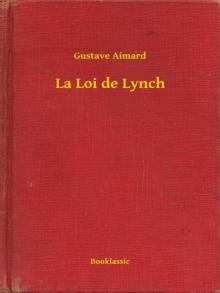 La loi de lynch. English
La loi de lynch. English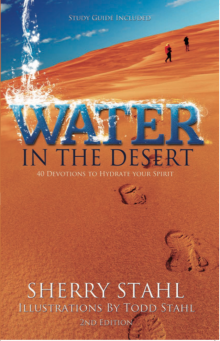 The Guide of the Desert
The Guide of the Desert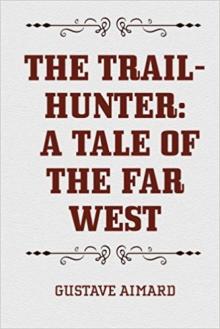 The Trail-Hunter: A Tale of the Far West
The Trail-Hunter: A Tale of the Far West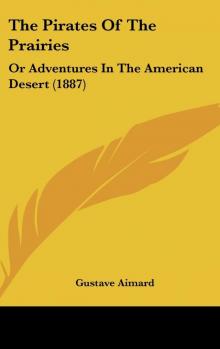 The Pirates of the Prairies: Adventures in the American Desert
The Pirates of the Prairies: Adventures in the American Desert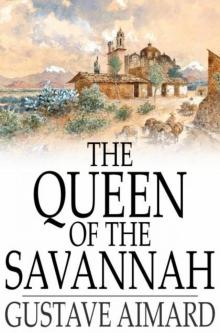 The Treasure of Pearls: A Romance of Adventures in California
The Treasure of Pearls: A Romance of Adventures in California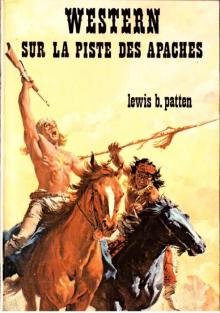 Les outlaws du Missouri. English
Les outlaws du Missouri. English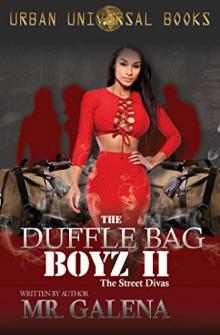 Les trappeurs de l'Arkansas. English
Les trappeurs de l'Arkansas. English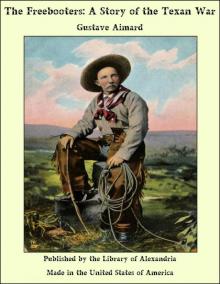 The Border Rifles: A Tale of the Texan War
The Border Rifles: A Tale of the Texan War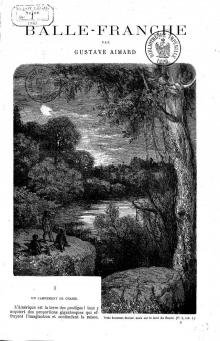 Balle-Franche. English
Balle-Franche. English The Queen of the Savannah: A Story of the Mexican War
The Queen of the Savannah: A Story of the Mexican War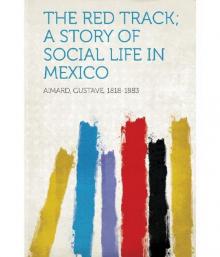 The Red Track: A Story of Social Life in Mexico
The Red Track: A Story of Social Life in Mexico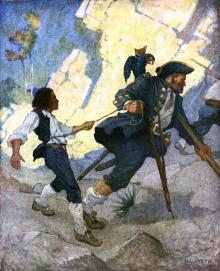 La fièvre d'or. English
La fièvre d'or. English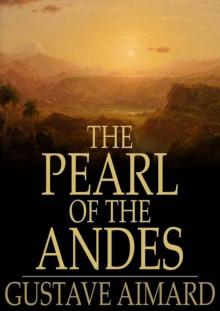 The Pearl of the Andes: A Tale of Love and Adventure
The Pearl of the Andes: A Tale of Love and Adventure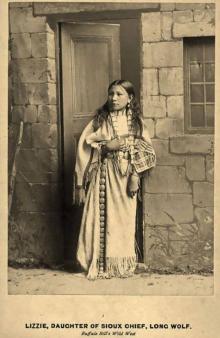 Les fils de la tortue. English
Les fils de la tortue. English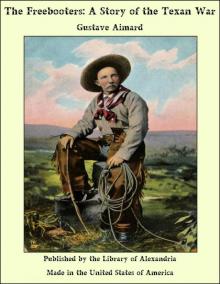 The Indian Chief: The Story of a Revolution
The Indian Chief: The Story of a Revolution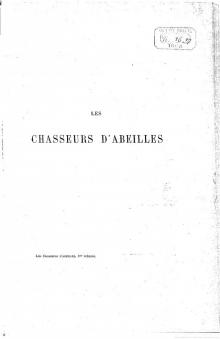 Les chasseurs d'abeilles. English
Les chasseurs d'abeilles. English The Adventurers
The Adventurers